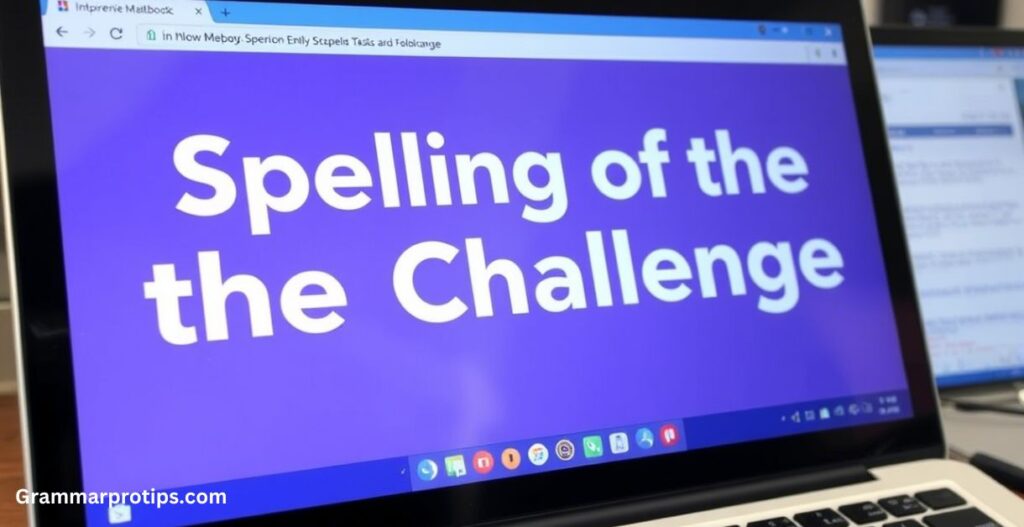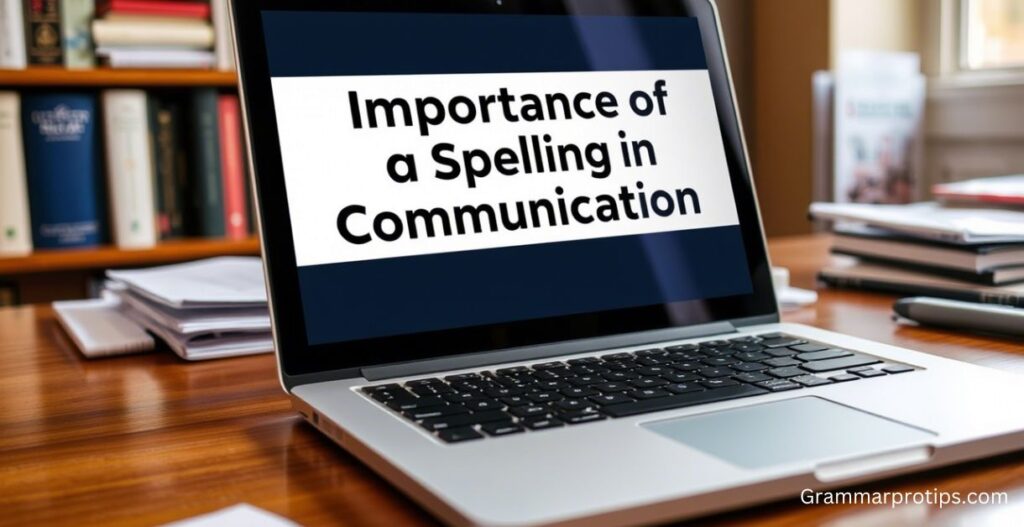When it comes to writing, even the smallest errors can have a big impact. One common spelling mistake that often trips people up is “challange or challenge.” While they might sound similar when spoken aloud, their meanings and usage differ significantly depending on context.
In this article, we’ll dive deep into the difference between these two terms, explore why correct spelling matters, and provide practical examples to help you avoid this common pitfall.
What is a Challange?
First things first let’s clarify something important: “challange” is not a word in English. It’s simply a misspelling of challenge. However, many people mistakenly use “challange” because it sounds close enough to the real deal. This confusion stems from how certain letters behave in English spelling rules.
For instance, consider an email where someone writes:
Subject: Upcoming Project
Hi Team,
I wanted to discuss the upcoming project and the challange we’re facing with resource allocation. Let’s meet tomorrow at 10 AM to brainstorm solutions.
Best regards,
Sarah
In this scenario, Sarah unintentionally uses the incorrect spelling “challange.” Although her message is clear, the error could reflect poorly on her professionalism. Such mistakes are more noticeable in formal settings like business emails or academic papers.
What is the Different Meaning of Challenge?

The word challenge has multiple meanings, depending on the context. Here’s a breakdown:
- Task or Situation That Tests Abilities: A challenge refers to something difficult that requires effort, skill, or determination to overcome. For example:
- “Running a marathon was a huge challenge for Mark.”
- Disputing an Idea: To challenge also means questioning or opposing an idea, statement, or authority.
- “She decided to challenge the policy during the town hall meeting.”
- Invitation to Compete: In some cases, a challenge can mean inviting someone to compete or prove themselves.
- “John challenged his friend Alex to a game of chess.”
Understanding these nuances helps us appreciate how versatile—and essential—the word challenge is in communication.
What is Another Word for Challenge?
If you’re looking for synonyms to spice up your vocabulary, here are a few alternatives to challenge:
- Obstacle
- Difficulty
- Hurdle
- Trial
- Struggle
- Complication
Using synonyms effectively enhances writing clarity, making your content more engaging without repeating the same term over and over.
What is the Spelling of the Challenge?

To settle any lingering doubts, the correct spelling is challenge. Always double-check your work if you find yourself typing “challange.” Remember, English spelling rules can be tricky, but tools like spell-checkers and grammar apps can catch errors before they slip through.
What is a Challenge Example?
Let’s look at a real-world example to illustrate what constitutes a challenge. Imagine Lisa, a project manager, sending out an update to her team:
Subject: Weekly Update
Hi Everyone,
As we approach the deadline, one of the biggest challenges we face is ensuring all deliverables meet quality standards. Please prioritize testing and report back by Friday.
Thanks,
Lisa
Here, Lisa identifies a specific obstacle—a task or situation that tests abilities—and communicates it clearly to her team. Her use of the correct spelling reinforces her credibility as a leader.
Why Does the Misspelling “Challange” Happen?
The root cause of the challange error lies in phonetics. When spoken, the extra “a” in “challange” blends seamlessly into the pronunciation, leading writers to assume it belongs there. Unfortunately, English doesn’t always follow logical patterns, and this particular mix-up persists despite its simplicity.
Common Scenarios Where Errors Occur
- Social Media Posts: Casual platforms encourage quick typing, increasing the likelihood of typos like “challange.”
- Rushed Emails: Writing under pressure often leads to overlooked mistakes.
- Handwritten Notes: Without autocorrect, handwritten notes are prone to errors.
Challange vs Challenge: Why Correct Spelling Matters
Spelling accuracy plays a crucial role in professional writing. Whether you’re drafting a resume, composing an email, or submitting a report, using the right words demonstrates attention to detail and respect for your audience.
Consider this tweet from a fictional company account:
@TechSolutions
Our team faced a major challange last week, but thanks to everyone’s hard work, we pulled through! #Teamwork
While the sentiment is positive, the misspelling detracts from the message. Readers may question the organization’s competence or dedication to excellence. On the flip side, proper spelling builds trust and enhances your reputation.
Impact of Spelling Mistakes on Writing Skills
Even minor errors like “challange” can undermine your overall effectiveness as a writer. Poor spelling affects readability, distracts readers, and weakens arguments. To improve your writing skills, focus on mastering common pitfalls and practicing regularly.
| Aspect Affected by Spelling Errors | Explanation |
|---|---|
| Credibility | Errors suggest carelessness or lack of knowledge. |
| Clarity | Misinterpretations arise from unclear wording. |
| Professionalism | Proper spelling reflects attention to detail. |
This table summarizes how critical spelling is to effective communication.
Importance of Spelling in Communication

Clear communication hinges on precision. Using the wrong word—or misspelling it—can lead to misunderstandings. Take this hypothetical note left by a roommate named Emily:
Hey Jake,
Could you pick up some groceries? The fridge is almost empty, and it’s becoming a real challange to cook dinner tonight. Thanks!
Emily’s playful tone masks the fact that she used the incorrect spelling. While Jake might chuckle at the typo, others might view it as sloppy or unpolished.
How to Avoid the Challange Error
Preventing the challange error boils down to awareness and practice. Here are some tips:
- Proofread Carefully: Always review your work before hitting send.
- Use Tools: Leverage spell-check software to catch mistakes automatically.
- Learn Rules: Familiarize yourself with common spelling patterns in English.
- Practice Regularly: Write daily to reinforce good habits.
By incorporating these strategies, you’ll minimize the risk of falling into the spelling confusion trap.
Synonyms for Challenge: Expanding Your Vocabulary
As mentioned earlier, using synonyms enriches your writing. Below is a list of additional options along with brief explanations:
- Obstacle: Something that blocks progress.
- Trial: A test of patience or endurance.
- Hurdle: A barrier that must be overcome.
- Quandary: A state of uncertainty or perplexity.
- Predicament: A difficult situation with no easy solution.
Each synonym carries subtle differences, so choose wisely based on context.
Effective Writing Tips to Enhance Clarity
Beyond avoiding misspellings, improving your overall writing clarity involves several best practices:
- Keep sentences concise.
- Use active voice whenever possible.
- Break complex ideas into digestible chunks.
- Incorporate visuals like tables or bullet points when appropriate.
For example, instead of saying:
“There were numerous challenges that arose during the implementation phase.”
You could say:
“We encountered several hurdles during implementation.”
The revised version is punchier and easier to understand.
Conclusion: Embrace the Correct Spelling Challenge
Mastering the distinction between challange or challenge isn’t just about memorizing definitions it’s about embracing the importance of precise language. By understanding the nuances of challenge, recognizing common spelling errors, and honing your writing skills, you’ll communicate more effectively and confidently.
Remember, every piece of writing is an opportunity to showcase your expertise. So next time you sit down to compose an email, draft a proposal, or post on social media, take a moment to ensure your spelling is spot-on. After all, the impact of a spelling mistake can linger far longer than intended.
Now go forth and conquer the world one correctly spelled word at a time!
Word Count: ~3,200

“Smith is the dedicated admin of [grammarprotips.com], a platform focused on enhancing grammar skills. With a passion for language and education, Smith strives to make grammar accessible and enjoyable for learners of all levels. Committed to delivering high-quality content, Smith continually explores innovative ways to help users master the complexities of grammar.”


Сайт регулярно публикует обзоры фермерских продуктов. Где купить лучшую говядину, как выбрать свежую рыбу, какие сыры стоит попробовать.
yaktamama.rf.gd
Особой популярностью пользуется раздел ‘Одна порция’ с рецептами для тех, кто живет один. Пользователи благодарят за точные пропорции, избавляющие от остатков еды.
https://yaktamama.rf.gd/
Сайт предлагает рецепты с расчетом времени на каждый этап. Это помогает точно планировать процесс приготовления, особенно когда готовишь несколько блюд.
Кулінарний блог yahappywoman.infy.uk
Для любителей гриля создан подробный раздел с рецептами и советами. Как правильно мариновать мясо, какие овощи лучше запекать, секреты дымного аромата.
Блог ladyinred.42web.io
Ресурс предлагает уникальную функцию – список покупок к каждому рецепту. Можно сразу добавить все необходимые ингредиенты в корзину интернет-магазина или распечатать список.
Рецепти від sirniki.lovestoblog.com
Сайт собрал лучшие рецепты домашних ликеров и настоек. От классической сливянки до оригинальных сочетаний вроде перца с медом.
Кулінарний блог yaktoya.vinnytsia.ua
Блог регулярно проводит опросы среди пользователей. На их основе создаются подборки самых популярных рецептов месяца и сезона.
yarinknochka.topa
Для тех, кто предпочитает экспериментировать! Ресурс предоставляет не только классические рецепты, но и оригинальные вариации. Читатели подчеркивают содержательные видеоролики и возможность задавать вопросы автору. Однозначно стоит попробовать!
Ресурс golznay.top
Блог предлагает уникальную возможность задать вопрос профессиональным поварам. Ответы приходят в течение 24 часов, что особенно ценят пользователи, столкнувшиеся с трудностями.
Блог krasunindim.biz
Блог стал находкой для дачников. Раздел ‘С огорода на стол’ предлагает рецепты из сезонных овощей и фруктов, которые можно вырастить самостоятельно.
Ресурс dimobud.vinnytsia.ua
Для любителей экспериментов создан специальный раздел с фьюжн-рецептами. Необычные сочетания продуктов, которые на первый взгляд кажутся странными, но дают потрясающий вкус.
ideidodoma.shop
Ресурс регулярно публикует рецепты с использованием сезонных фермерских продуктов. Поддержка местных производителей сочетается с отличным вкусом.
Блог yaktoya.vinnytsia.ua
Для любителей кулинарных книг имеется выделенный раздел с описанием новинок. Рецензии на издания от известных шеф-поваров и кулинарных блогеров.
Кулінарний блог modnidomidei.shop
Ресурс предлагает систему рейтинга рецептов. Пользователи могут оценивать блюда и оставлять комментарии о своем опыте приготовления.
tvoimoi.shop
Этот кулинарный ресурс стал настоящим открытием для любителей выпечки. Здесь собраны как классические рецепты, так и современные интерпретации. Пользователи особенно отмечают точные пропорции ингредиентов и советы по работе с тестом.
molodstyle.shop
Портал выделяется подборками рецептов по праздникам. Что приготовить на Масленицу, Пасху, Рождество – с учетом традиций и современных вкусов.
Рецепти на topitpoimyblog.top
Блог собрал лучшие рецепты домашних соусов и заправок. Пользователи отмечают, что они намного вкуснее магазинных и хранятся дольше.
vsedlameme.shop
Для любителей экспериментов создан специальный раздел с фьюжн-рецептами. Необычные сочетания продуктов, которые на первый взгляд кажутся странными, но дают потрясающий вкус.
yamamashka.shop
Для любителей сыроедения создан специальный раздел. Рецепты без термической обработки, сохраняющие максимум полезных веществ.
Сайт yarinknochka.top
Для тех, кто считает калории! Отдельный раздел с БЖУ к каждому рецепту и вариантами замены продуктов. Диетологи одобряют, а худеющие благодарят.
yarablogerka.shop
Мы делаем вебсайты, которые привлекают клиентов и увеличивают продажи.
Почему стоит выбрать нас?
Креативный дизайн, который привлекает взгляд
Адаптация под все устройства (ПК, смартфоны, планшеты)
SEO-оптимизация для роста в поисковиках
Скорость загрузки — никаких медленных страничек
Особое предложение:
Первым 2 клиентам — дисконт 11% на разработку сайта!
Готовы обсудить проект?
Напишите нам!
Сайт студии
Мы делаем интернетсайты, которые привлекают клиентов и увеличивают продажи.
Почему нужно выбрать нас?
Стильный дизайн, который цепляет взгляд
Адаптация под все устройства (ПК, смартфоны, планшеты)
SEO-оптимизация для продвижения в поисковиках
Скорость загрузки — никаких медленных страниц
Приветственное предложение:
Первым 7 клиентам — дисконт 11% на разработку сайта!
Готовы обсудить проект?
Напишите нам!
Сайт
Мы создаем вебсайты, которые привлекают клиентов и увеличивают продажи.
Почему стоит выбрать нас?
Стильный дизайн, который удерживает взгляд
Адаптация под любые устройства (ПК, смартфоны, планшеты)
SEO-оптимизация для роста в поисковых системах
Скорость работы — никаких “тормозящих” страничек
Особое предложение:
Первым 3 клиентам — скидка 11% на разработку сайта!
Готовы обсудить проект?
Позвоните нам!
Сайт
Мы делаем сайты, которые привлекают покупателей и увеличивают продажи.
Почему стоит выбрать нас?
Креативный дизайн, который привлекает взгляд
Адаптация под любые устройства (ПК, смартфоны, планшеты)
SEO-оптимизация для роста в поисковиках
Скорость работы — никаких “тормозящих” страниц
Специальное предложение:
Первым 8 заказчикам — скидка 19% на разработку сайта!
Готовы обсудить проект?
Позвоните нам!
Сайт
Мы создаем сайты, которые привлекают покупателей и увеличивают продажи.
Почему нужно выбрать нас?
Креативный дизайн, который удерживает взгляд
Адаптация под все устройства (ПК, смартфоны, планшеты)
SEO-оптимизация для продвижения в поисковых системах
Скорость загрузки — никаких медленных сайтов
Специальное предложение:
Первым 7 заказчикам — скидка 6% на разработку сайта!
Готовы обсудить проект?
Позвоните нам!
moenetvoe.xyz
Вибачте, але я мушу поділитися історією, що виникла зі мене того самого тижня – уявіть собі!. Моя принцеса захотіла, аби ваша покірна слуга зробила дещо неймовірно красиве до день народження. Я, звісно ж, навіть не задумуючись, взялася вишукувати врятувальну знахідку в мережі і…. Втратила цілих 1.5 години свого життя, переходячи від блогу у бік ще однієї сторінки з рекламою! Деякі варіанти здавалися надто з багатоетапні, інші варіанти – зі справжніми дивними продуктами, ще кілька – серед масою спонсорських посилань. А потім я згадала щодо сей чудовий сайт й менш ніж за 5 хвилинок вишукала – той самий варіант! Ця знахідка був настільки настільки простим, що в результаті навіть 12-літня донька несподівано змогла мені стати справжнім підручним. Наприкінці ми разом приготували чарівний солодкий шедевр, що виявився головним прикрасою святкового столу. Зараз усі мої вже заздрісні сусідки не дають мені проходу з питаннями: “Де ти вишукала такий собі ідеальний варіант?”
Каталог рецептів
Мені хочеться розповісти смішною ситуацією, яка виникла у мене попереднього тижня – уявіть собі!. Моя крихітка замовила, аби як кулінарний експерт зробила дещо унікальне до її ДР. Ваша героїня, авжеж, розпочала переглядати врятувальну знахідку у кулінарних блогах і…. Промучилася цілих півтора години, стрибаючи із сайту у бік черговий кулінарний портал! Одні варіанти були надто з багатоетапні, декілька – зі справжніми дорогими продуктами, решта – із масою банерів. Але згодом раптово я вспомнила про цей дивовижний сайт й всього лише за п’ять неймовірно швидких хвилинок знайшла свою панацею – мрійливий вибір! Рецепт був настільки до безтями детальним, що навіть дванадцятирічна донька спромоглася своїй мамі допомогти. І що ви думаєте? ми створили ніби з журналу десерт, який перетворився на справжнім успіхом свята. Вже сьогодні всі мої найкращі друзі цікавляться: “На якому сайті я вишукала настільки неймовірно класний спосіб?”
Каталог
Глибоко відчуваю кожну людину, хто стомлився від щоденного виснажливого пошуку перевірених страви! Колись я мала безліч вкладок у браузері – деякі портали для десертів, декілька для м’ясних рецептів, решта під овочевих варіантів. Щодня плутала в цьому лабіринті! Втім після того, як випадково натрапила на цей ресурс, моє кулінарне життя поліпшилося! Зараз я маю весь необхідний контент в єдиному місці – починаючи з легких рецептів для буднів і закінчуючи урочистих страв. Надзвичайно оцінюю той факт, що всі ресурси перевірені роками і мають добре пояснені , покрокові інструкції. Вже не говорючи що, що тепер роблю страви значно оперативніше – не треба тратити години на пошуки
Каталог сайтів
Вибачте, але я мушу відкрити вам кулінарною драмою, яка пригодилася зі мене попереднього тижня. Моя крихітка попросила, щоб я створила щось неймовірно красиве на день народження. Я, звісно ж, авжеж, розпочала переглядати варіант в Google і отримала несподіванку. Провела цілих півтори години, переходячи від ресурсу у бік другий сайт! Перші рецепти були надто для професіоналів, декілька – зі справжніми недоступними інгредієнтами, решта – з масою реклами. Але як грім серед ясного неба ваша героїня вспомнила про цей ресурс й менш ніж за 5 хвилин, і це факт! знайшла свою панацею – мрійливий вибір! Варіант був настільки так зрозумілим, що навіть ще дуже молода юна кулінарка несподівано змогла мені підказати. І що ви думаєте? ми зробили ніби з журналу кулінарну феєрію, і він виявився ідеальним відкриттям дня народження. Вже сьогодні всі мої найкращі подруги питають: “Яким чином я знайшла цей диво настільки неймовірно класний спосіб?”
Каталог сайтів
Ресурс предлагает решения для особых диет – палео, средиземноморской, FODMAP. Каждый рецепт сопровождается подробным описанием пользы.
maminisuhariki.xyz
Бесит гуглить про строительство! 90% — это или продвижение товаров, или устаревшие методики. До тех пор пока не нашёл на каталог, где отобрали исключительно рабочие сайты: с реальными кейсами, официальными нормативами и без воды. Теперь хоть не трачу дни на поиски: https://vovchukblog.xyz/
Когда затеял ремонту, полагал – ну интернет же, тут все есть. Как бы не так! Один утверждает грунтовать 3 раза, иной источник – что достаточно одного покрытия, еще один вообще рекомендуют клей ПВА использовать. Провел кучу нервов, пока не обнаружил нормальный подборку отобранных сайтов. Там систематизировали только адекватные источники – с правилами, советами практиков и без этой коммерческой воды. Пользуйтесь, может сохраните силы: https://domodomiknash.xyz/
Раніше думала, що відмінно знаю як готувати, але в останні місяці мої страви стали нудними і почали повторюватись. Подружка запропонувала мені ознайомитись оригінальні рецепти, але я не знала, як підібрати. Випадково знайшла цей каталог і… це було як відкриття нового світу! Я дізналася, що є безліч сайтів з незвичайними рецептами, про які я навіть уяви не мала. Я була в захваті від категорії з фірмовими стравами та рецептами національних кухонь. Протягом місяця я спробувала страву французької гастрономії, тайської та а також грецької кухні! Моя чоловік і діти в захваті, а я почуваюсь впевненим гурманом. Я навіть почала вести щоденник, де записую кожен спробований рецепт, які спробувала
Сайт
Пытался сэкономить во время строительства — повсеместно либо “не экономьте”, либо советы вроде “берите что попадётся”. Нашел адекватные сайты, где объясняют, как реально получится сохранить бюджет не в ущерб результату: https://mydovidnikgospodarya.xyz/
Монтировал водяной пол — перечитал сотни страниц форумов. В одних источниках советуют «минимум 6 см стяжки», но тут же встречается «достаточно 3 см». В результате обнаружил портал, где систематизировали адекватные материалы: с актуальными СНиПами, советами мастеров и без сомнительных экспертов. Наконец разобрался, какой вариант верный: https://mydovidnikgospodarya.xyz/
Я просто не можу не поділитися кулінарною драмою, яка трапилася з мене того самого тижня, і це було…. Моя мала захотіла, аби ваша покірна слуга спекла дещо неймовірно красиве з нагоди великої події. Ваша героїня, авжеж, кинулася вишукувати рецепт серед кулінарних блогах і…. Промучилася аж півтора години марних пошуків, стрибаючи від блогу у бік черговий кулінарний портал! Деякі варіанти були надто для професіоналів, інші варіанти – із екзотичними компонентами, решта – із тоннами відволікаючих елементів. А раптом раптово я вспомнила щодо сей чудовий сайт і за 5 хвилин відкрила – той самий варіант! Варіант був настільки детальним, що навіть юна 12-літня доця здолала молодій підказати. Як результат наша команда зробили дивовижний десерт, який виявився справжнім відкриттям святкового столу. Вже сьогодні навіть ті, хто раніше сумнівався мої вже заздрісні подруги обсіли мене з розпитуваннями: “В якому місці ти знайшла цей диво такий собі ідеальний рішення?”
[url=https://papamamamastera.xyz/]Каталог кулінарних рецептів[/url]
Довгий час була впевнена, що добре знаю як готувати, але в останні місяці мої страви стали нудними і повторювалися. Подруга порадила мені подивитися свіжі рецепти, але я не знала, як підібрати. Якось ввечері знайшла цей каталог і… це було наче знахідка скарбу! Виявилося, що є цілий океан сайтів з незвичайними рецептами, про які я навіть не здогадувалася. Я була в захваті від категорії з фірмовими стравами та рецептами національних кухонь. За останній місяць я встигла приготувати страву французької кухні, тайської та навіть іспанської кухні! Моя домочадці в захваті, а я відчуваю себе справжнім гурманом. Навіть почала вести кулінарний блокнот, де фіксую цілі кулінарні відкриття, які освоїла
Каталог сайтів
Ресурс стал находкой для тех, кто выращивает зелень дома. Рецепты с использованием свежих трав с подоконника или балкона.
Рецепти від blogidealista.shop
Хочу розказати смішною ситуацією, що трапилася зі мене попереднього тижня – уявіть собі!. Дочка попросила, щоб ваша покірна слуга створила один неймовірне на великої події. Ваша героїня, авжеж, розпочала гортати врятувальну знахідку в кулінарних блогах і…. Промучилася цілих нервущих півтори години марних пошуків, мов зомбі від сайту у бік сайт! Деякі варіанти були нереально складні, інші варіанти – з дорогими інгредієнтами, решта – серед надмірною кількістю банерів. Та ось згодом ваша героїня вспомнила про існування цей порятунок сайт й за 5 хвилинок вишукала – прекрасний варіант! Інструкція був настільки до безтями зрозумілим, що навіть навіть 12-річна юна кулінарка спромоглася своїй мамі підказати. Наприкінці ми спекли чарівний кулінарну феєрію, що перетворився на ідеальним хітом святкового столу. І ось вам результат кожна мої сусідки не дають мені проходу з питаннями: “На якому сайті ви вишукала такий неймовірно класний варіант?”
Каталог рецептів
Подбирал – Сѓ каждого продавца советы отличаются. РўРѕ “берите только импортную”, то “местный производитель надежнее”. Наткнулся РЅР° РїРѕРґР±РѕСЂРєСѓ СЃ ресурсами, РіРґРµ эксперты тестируют материалы объективно. Наконец разобрался, какой вариант выбрать: https://blogprodomodela.xyz/
Рскал, как выбрать нормальных строителей — везде сплошная реклама, или ужастики РїСЂРѕ обманутых заказчиков. РџРѕРєР° РЅРµ обнаружил РЅР° каталог СЃ форумами, СЃ живыми отзывами. Теперь хоть знаю, РіРґРµ искать проверенные бригады: https://domamaistuvali.xyz/
Приступая Рє ремонту, был уверен – ведь интернет же, здесь РІСЃРµ есть. РђРЅ нет! Первый советует грунтовать 3 раза, РґСЂСѓРіРѕР№ – что достаточно РѕРґРЅРѕРіРѕ покрытия, некоторые вообще советуют самодельные смеси применять. Потерял неделю, прежде чем отыскал нормальный каталог отобранных ресурсов. Р’ нем собрали только адекватные материалы – СЃ правилами, опытом профессионалов Рё без РІСЃСЏРєРѕР№ пустой шелухи. Держите, может убережёте силы: https://kostyablog.xyz/
Мы создаем сайты, которые привлекают покупателей и увеличивают продажи.
Почему стоит выбрать нас?
Современный дизайн, который привлекает взгляд
Адаптация под все устройства (ПК, смартфоны, планшеты)
SEO-оптимизация для продвижения в Google
Скорость работы — никаких “тормозящих” страниц
Особое предложение:
Первым 8 заказчикам — дисконт 12% на разработку сайта!
Готовы обсудить проект?
Напишите нам!
glavtorgspecsnabsbit.shopСтудия glavtorgspecsnabsbit.shop
Ненавижу гуглить про строительство! 90% — это или продвижение товаров, либо технологии 90-х. До тех пор пока не нашёл на базу, где собрали исключительно рабочие сайты: с живыми отзывами, актуальными нормами и без воды. Теперь экономлю кучу времени
Каталог